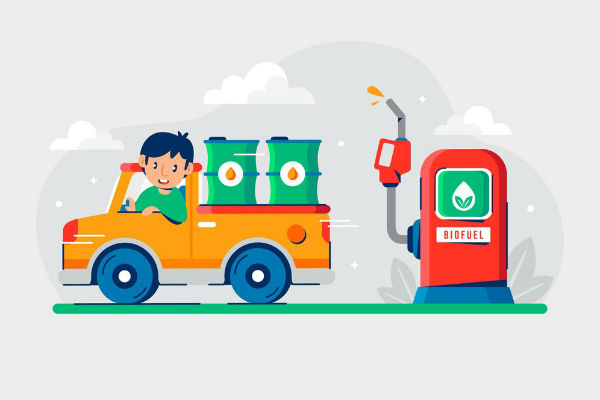Fuel-Saving Tips to Help You Save Money at the Pump
In a world where fuel prices can fluctuate unpredictably, drivers are constantly looking for ways to stretch their dollars at the gas station. While you might not be able to control gas rates, you can adopt several fuel-saving strategies to reduce consumption and save money. Here are some essential tips to keep your tank—and wallet—fuller for longer.
Plan Your Trips Wisely
A well-planned trip can significantly reduce unnecessary driving, which in turn saves fuel. Combine your errands into one trip to avoid multiple short trips that consume more gas. When you head out, avoiding peak traffic hours can lead to less idling and less fuel burned while stuck in congestion.
Maintain Your Vehicle
Regular maintenance is key to keeping your car running efficiently. A vehicle in top condition uses fuel more effectively. Make sure to:
- Check your tire pressure: Under-inflated tires can lower gas mileage by about 0.2% for every 1 psi drop in the average pressure of all tires.
- Replace air filters: A clean air filter can improve your car’s performance and acceleration, which in turn can improve fuel economy.
- Use the correct oil: Utilizing the grade of motor oil advised by your car’s manufacturer can enhance your fuel efficiency by 1% to 2%.
Drive Smart
Your driving habits have a significant impact on fuel consumption. Accelerating smoothly, maintaining a steady speed, and reading the road ahead to avoid unnecessary braking can contribute to more miles per gallon.
- Use cruise control: On the highway, cruise control can help maintain a constant speed, leading to better fuel efficiency.
- Reduce idling: Idling can use a quarter to a half gallon of fuel per hour, depending on engine size and air conditioner use.
Lighten Your Load
The heavier your vehicle, the more fuel it uses. Remove unnecessary items from your car, and if you’re not using them, take off roof racks and carriers, as they create wind resistance and reduce fuel economy.
Consider Your Fuel Options
With the rise of renewable energies, many drivers now have access to alternative fuels that may offer better value.
- Use regular unleaded: If your car doesn’t require premium gas, don’t buy it. Higher octane fuel doesn’t necessarily mean better fuel economy.
- Consider alternative fuels: For those who drive electric or hybrid vehicles, using electric charging during off-peak hours can result in savings.
Take Advantage of Technology and Discounts
Modern technology can also assist in saving on fuel costs. Several apps are designed to help you find the cheapest gas prices in your area. Additionally, some credit cards offer cash back or rewards for purchases made at gas stations.
- Rewards programs: Joining a fuel rewards program can lead to per-gallon savings each time you fill up.
- Fuel-efficient route finders: Use GPS and apps to find the most fuel-efficient routes.
Reassess Your Insurance
While this may not directly save fuel, reducing your overall car expenses can make driving more affordable. Occasionally, shopping for car and auto insurance quotes can ensure you’re not overpaying for insurance, leaving you more money to allocate toward gas.
Consider Your Commute and Car Use
If you are serious about saving fuel, consider if you can change your commuting habits.
- Carpool: Sharing rides with others can halve or quarter your fuel costs.
- Use public transportation or bike: Whenever possible, using alternative modes of transportation can save a significant amount of fuel over time.
Conclusion: While it’s easy to feel at the mercy of fluctuating fuel prices, there are numerous ways to reduce your consumption and save money at the pump. From better driving habits to regular maintenance and smarter trip planning, these tips can help ease the strain on your wallet. As you implement these strategies, remember that saving fuel is not just about economic savings—it also contributes to a cleaner environment, making every saved gallon a win-win for your budget and the planet.
